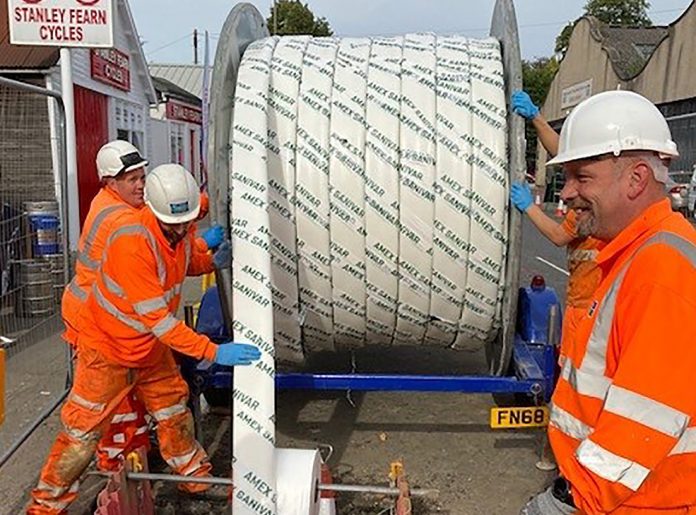By Tim Farley, Business Development Manager at Sanivar
Innovation is often perceived as radical and complex change using futuristic solutions to solve advanced challenges, but a shift in mindset to use proven technologies in everyday practices to tackle current issues could transform the rate at which the industry progresses.
Leakage is a well-recognised and established issue within the water industry, and we have a host of businesses and bodies looking at ways that leakage can be reduced. The Northumbrian Water Innovation Festival recently returned to Newcastle and discussions centred on developing ‘no dig’ solutions to usher in a massive reduction in leakage.
But while this solution is an extremely favourable one, the technology is likely another five years away. What is truly needed to overcome the challenge of leakage is immediate action.
Leakage is a huge environmental and societal challenge. Within the UK marketplace it is estimated that approximately 2.459 million litres of water leak across England and Wales water mains every single day. The cost of utility street works for water, electricity and gas, factoring in intervention and disruption, costs the UK economy £7billion every year.
Leakage at this rate represents a failure of industry – water is arguably our most precious resource and paying to treat water that we will never have an opportunity to use is a huge waste of funds and resource.
The problem is also set to worsen over coming years. Demographic changes in the UK will prompt higher demand for water, and the increasing number of housing developments apply further pressure, particularly in the South East where water stress is greatest. These changes will be compounded as we see the effects of the shifting climate impact our country in ways we can only begin to predict. With all of this considered, typical BAU practices are not sustainable and will not deliver the long-term outcomes needed to combat the challenges that the sector faces.
The industry-wide target identified at the Festival is to halve leakage by 2050 while simultaneously minimising interruptions and reducing repair costs. With more immediate interventions, this timeline could be much shorter.
The debate over this issue is centred around responsive and preventative solutions. Water companies are locked into a leak repair mindset as opposed to looking at maintaining the network, and a quantum shift is needed in our thought processes behind leakage solutions.
Fixing a pipe leak is a responsive action, however, repairing a leak often only shifts the issue further down the pipeline to another weak spot, deferring the problem to a later date. Pipe lining and spray lining technologies are preventative measures that ensure protection of the entire line and its supply.
For example, our stand-alone ‘pull in’ liners have been used around the world for the trenchless rehabilitation of pressurised water mains. Using ‘minimal-dig’ technology, they are inserted within existing pipes so that should a breakage or leak occur in the host pipe the supply of the resource is not compromised,
There are further changes that could also be made for immediate impact. A significant proportion of the operations teams within the water sector are over 50 and will be retiring within the next 20 years.
This can be a blocker to innovation as these individuals will often default to tried and tested methods and may not wish to embrace innovation in the twilight of their career, inhibiting innovation in the sector. Encouraging new talent into the industry to explore their fresh ideas and capitalise on their motivation to try new solutions to solve longstanding problems is vital to bring about an industry-wide cultural shift.
We shouldn’t be frightened of failing on the journey to innovation and allow fear to lull the industry into waiting for future Utopian solutions to solve problems. Innovation is about evolution and changing our working practices now is a vital step along this journey.



